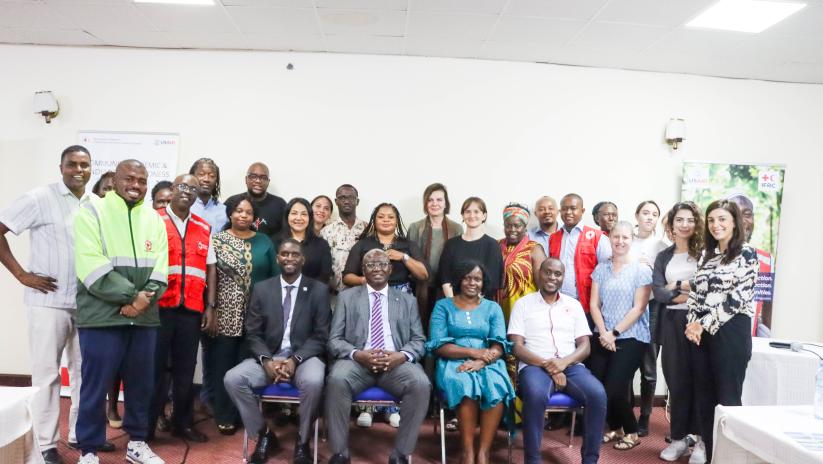
The training included 25 individuals from 10 National Societies and 3 Regional offices as well as representatives from the Uganda MOH and WHO. The training was supported by USAID and ECHO and Norwegian Red Cross to continue strengthening epidemic and pandemic preparedness and response at the National level and regional-level for deployments. Learn more about the goals and objectives of the CBS Coordinator & Emergency training below:
The coordinator-level training in community-based surveillance has been designed to provide IFRC technical focal points, National Society programme managers & delegates with the skills and tools to:
-
Understand the key concepts behind CBS & how it interacts and integrates into existing surveillance systems
-
Lead CBS assessments and development process of a CBS protocol, including rapid assessments in emergencies
-
Train and support supervisors in training volunteers
-
Explain the roles and responsibilities of different actors engaged in the CBS system
-
Support or lead National Society/ key stakeholders in selecting data management tools and the relevant regular data analysis needed for the successful implementation of CBS
-
Adapt CBS based on context including scaling up and down activities during emergencies
-
Advocate for CBS when it is appropriate and feasible among key stakeholders
Who is this training designed for?
-
National Society & IFRC technical public health and WASH managers, coordinators, technical advisers or emergency delegates who support CBS or are planning CBS activities.
-
IFRC technical focal points (country, cluster, region, global) who support CBS and related epidemic and pandemic preparedness & response activities.
-
All participants should have deep competence in public health, WASH, or humanitarian response management, with an interest to expand this experience to implementing CBS.



